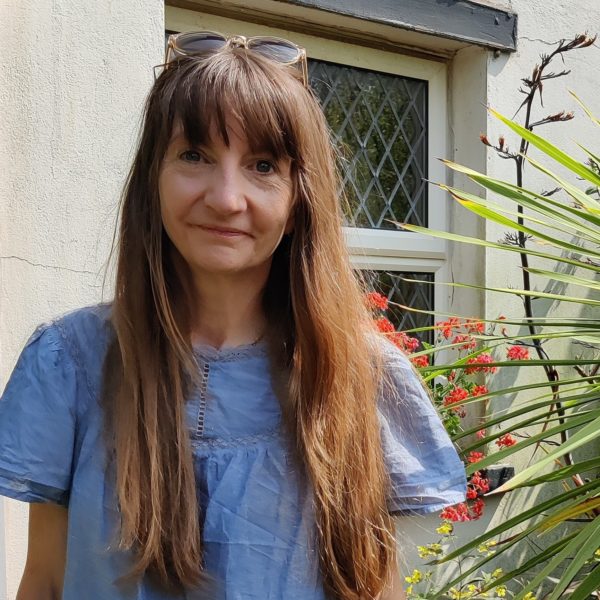How Sense supports people with complex disabilities to explore their sexuality and gender identity
To mark Pride Month, Tracy Girling explains how she and other Sense sexuality and relationships advisers support adults with complex disabilities with their identity and sexuality.
The situations described in this post are real, but the names and some small details have been changed to protect privacy.
If you think about how you learnt about sex and relationships, I bet most of what you know wasn’t told to you in a classroom.
You might have picked things up from your friends or older siblings, in the school playground or down the pub. Or perhaps you learned from things you watched, read or heard in the media. We call this incidental learning.
Ultimately, you probably went on to learn about what you like and don’t like, how different things or people make you feel, and what choices are right for you, through trial and error. You’d sometimes make mistakes and learn from them. We call this experiential learning.

Making sure people have choices is at the heart of our work at Sense. We know that to be able to make a choice about anything, you need to have learnt what the options are, and have some understanding about how those options would affect you and make you feel.
When it comes to supporting people with choices around identity, sexuality and relationships, this is easier said than done.
If you have complex disabilities, your opportunities for incidental learning can be limited or skewed. And learning through experience isn’t something that can be rehearsed. So, we have to take a careful approach.
James said he was going to marry Dave
Take James, for example. James lives in Sense Supported Living, sharing his home with two others. He’s blind and has a learning disability. He’s dependent on staff and others to explain and interpret what is going on around him, in a way that he will understand.
James has a housemate, Dave, who is deaf and has a learning disability. Dave uses sign language, so staff have to interpret between him and Dave. James and Dave like similar things and go out lots together.
Recently, James told staff that he loved Dave, that Dave is his boyfriend, and that he and Dave are getting married.
Staff came to me with lots of questions. Is James gay? Should we take him to a gay club? Does he know what marriage means? Is he just saying it because his sister got married recently?
I asked staff what Dave thinks, but they said they hadn’t told Dave yet because he is straight. They knew he used to have a girlfriend. They also said Dave’s elderly parents are known to be homophobic and Dave might be the same, so they didn’t want him to upset James.
Avoiding assumptions
Assumptions were being made, and there was a risk that staff might make choices without Dave and James being involved. It was important to get this right.
Clearly, this wasn’t straightforward, and I didn’t have conclusive answers. But the first thing to do was to support staff to involve James and Dave.
We sat with James and Dave and staff interpreted what both said. James told Dave about their planned wedding and that he would buy Dave a ring. Dave said he didn’t want to marry James because James wasn’t a woman. James didn’t take this very well and he blamed staff as they were the ones who were communicating the message. Things don’t always go smoothly!
Over the next few weeks, we chatted to James about relationships and the difference between friendships and personal relationships. We talked about mutual consent in all relationships and about what he wanted in the future. We checked his understanding of the choices of LGBT+ relationships, and he wrote the meanings of some of the words in braille. We let him know that whatever he chose would be okay.
The people supporting James made sure they were talking positively about different types of relationships, so that everyone in the house understood that those choices are okay.
James and Dave continued to be friends and do things together. Meanwhile, James now goes to a weekly social club where he has met a woman who he says he wants to ask to be his girlfriend. He openly talks to his staff about being bisexual.
Training staff and communicating openly are so important
James’ story shows two things. Firstly, how important it is to train staff to feel confident to be able to respond positively to situations like James’.
Secondly, it shows how important it is to communicate openly with everyone we support about different types of relationships and identities.
Stories like James’ aren’t uncommon – and we encounter questions around gender identity too. There aren’t often easy answers to questions about these topics. There’s no one-size-fits-all approach. But at Sense, by putting people truly at the centre of the support we give, we empower them to make and break their own relationships, find their own identity and ultimately feel supported in whatever they choose.
Everyone’s different
For some people, it’s about supporting them to learn in a formal way, whether that’s in group workshops, or one-to one sessions. We might use books, physical or online resources, art or drama activities, videos or easy read information.
For others, it’s about providing extra opportunities for incidental and experiential learning. The more people have a variety of things to touch, feel, hear or see, the more they may understand what choices they can make to express their identity: what clothes or make-up to wear, how to style their hair or beard, or how they like to socialise.
When we’re supporting people to learn in this way, we must give them freedom to explore for themselves. For example, when going clothes shopping, we have to make sure we’re not imposing our own style, or assumptions about gender or sexuality, on the people we support.
The more we all talk, share thoughts and ask questions about sex, relationships, sexuality and gender, the more it becomes a part of everyday life. This helps people learn and discover things naturally, and most importantly, make their own choices.
Want more stories like this in your inbox?
Sign up to get inspiring stories, news from our campaigns and ways to get involved, all delivered to your inbox.

